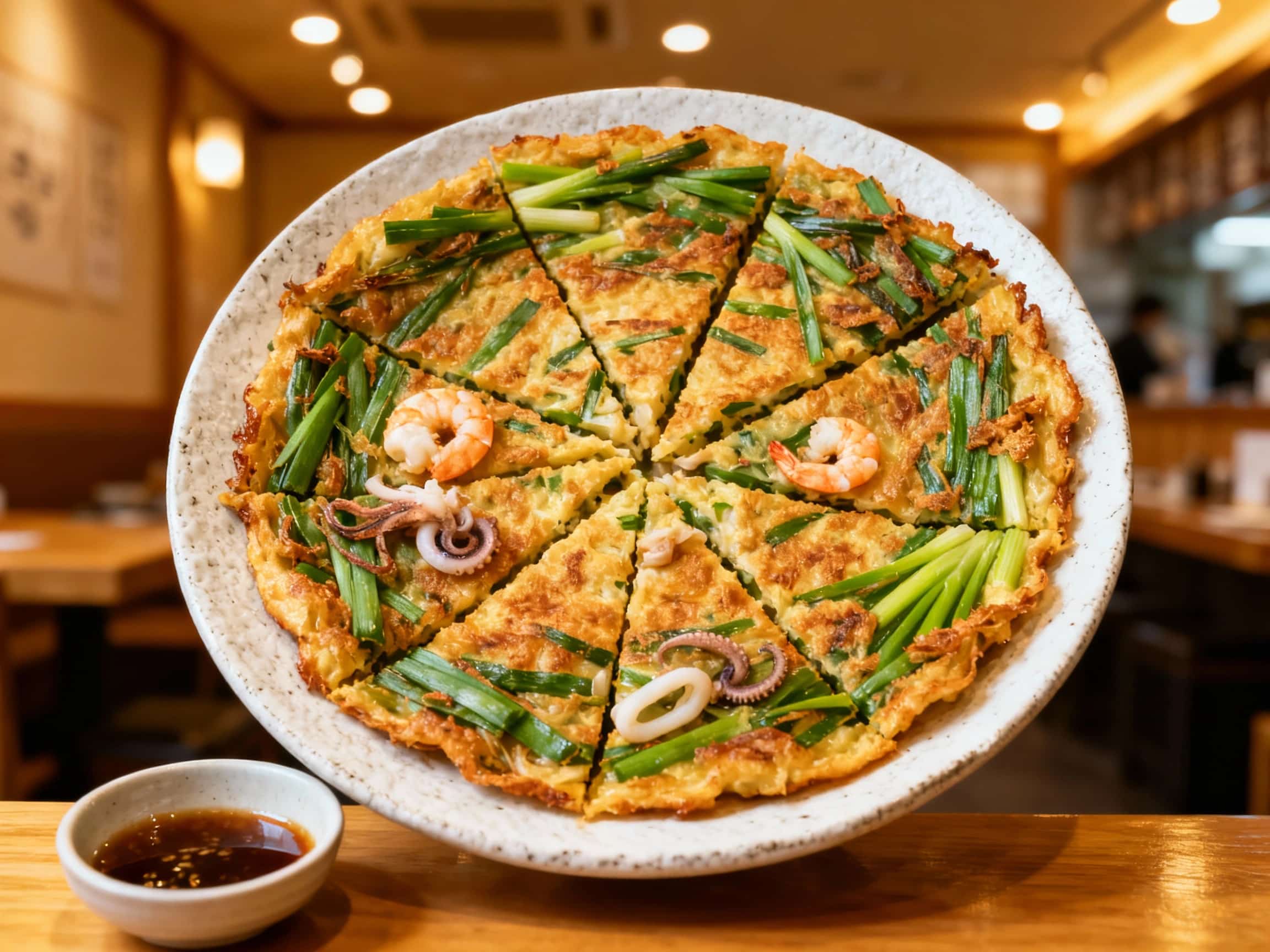
Pajeon
파전
- Country
- Korea
- Region
- Not specified
- Recipes
- 0 Recipes
Origins & Characteristics of Pajeon
Pajeon, or Korean green onion pancake, is a versatile and beloved dish that embodies the spirit of communal dining in Korea. The name itself, 'pa' referring to green onions and 'jeon' indicating a pan-fried dish, succinctly describes its primary components. While the exact origins are not precisely documented, savory pancakes have been a part of Korean cuisine for centuries, often utilizing seasonal vegetables. Pajeon specifically gained popularity as a celebratory dish, especially on rainy days, a cultural tradition where people crave the sound of sizzling oil mimicking raindrops and the comforting aroma of cooking pancakes. This cultural association continues to thrive today. There are several regional variations, with Haemul Pajeon (seafood pajeon) from coastal areas being particularly famous for incorporating fresh seafood like shrimp, squid, and oysters into the batter. Dongnae Pajeon from Busan is another notable variant, known for its thicker, chewier texture and often including beef. The widespread availability of flour and green onions ensured its place as an accessible and adaptable dish. Pajeon is typically served with a soy-sauce-based dipping sauce, often flavored with vinegar, chili flakes, and sesame seeds, which perfectly complements its savory, slightly crispy texture. It's a staple at traditional Korean drinking establishments (jumak) and a popular street food, loved for its hearty and satisfying nature.
History of Pajeon
Early forms of 'jeon' (pan-fried dishes) began to appear in Korean cuisine, adapting to available ingredients.
Recipes for vegetable pancakes, precursors to Pajeon, can be found in historical Korean cookbooks.
Pajeon, especially with seafood additions, became a widely popular dish, particularly associated with rainy days and communal gatherings.
Classic Pajeon recipes and variations
0 recipes foundWe'll add related recipes for this dish soon.